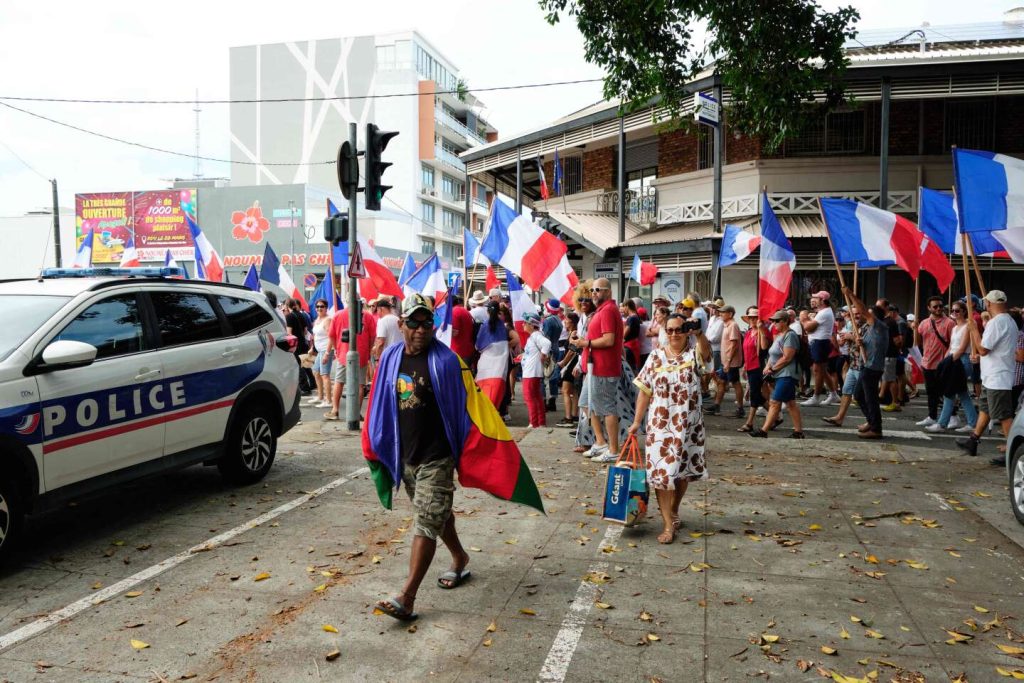On April 13, 2024, a pro-independence activist crosses the procession of loyalist protesters during a day of demonstrations in Nouméa. The crowd gathers at Port Moselle in downtown Nouméa, where Loyalists and The Rally-Republicans have called on their supporters to make their voices heard in Paris to demand the reopening of the electoral roll for provincial elections in order to restore democracy. Since 2007, the electoral roll for provincial elections, which determines the composition of the Congress of New Caledonia, excludes those who arrived after November 8, 1998, based on the Nouméa Accord of the same year to ensure that only New Caledonians can vote on the territory’s future in the context of its decolonization.
The intention of Gérald Darmanin to reform the Constitution to open the electoral roll had been known for several months, but the presentation of the constitutional law allowing it, adopted on April 2 by the Senate, reignited tensions between pro- and anti-independence groups. The National Assembly is set to examine the text in May, with both sides considering the issue crucial and staging demonstrations to demonstrate the legitimacy or illegitimacy of the reform. Galvanized by the strong turnout of 20,000 demonstrators (according to the High Commissioner of the Republic in New Caledonia, 35,000 according to organizers), Loyalist and Rally-LR leaders lead the procession chanting “All French, All New Caledonians” and “We are at home”, while the Marseillaise is sung fervently.
Within three hours, the mission is accomplished as organizers call for flags and signs to be returned, with the crowd quickly dispersing to resume their weekend activities. Meanwhile, the pro-independence gathering on the other side of downtown continues to grow, fueled by a constant influx of people arriving by car, bus, or on foot, waving Kanak flags throughout the city. Despite efforts to disrupt public transport, the pro-independence group successfully mobilizes with around 58,000 people present by late morning (20,000 according to the High Commission).
The New Caledonia political crisis escalates as tensions rise between pro-independence and loyalist groups over the proposed reform to open the electoral roll for provincial elections. With demonstrations and rallies in Nouméa drawing thousands from both sides, the debate over the future of the territory intensifies. As the National Assembly prepares to review the constitutional law, the question of New Caledonia’s electoral future remains a divisive and critical issue for all involved, with the outcome carrying significant implications for the region’s political landscape and future direction.


